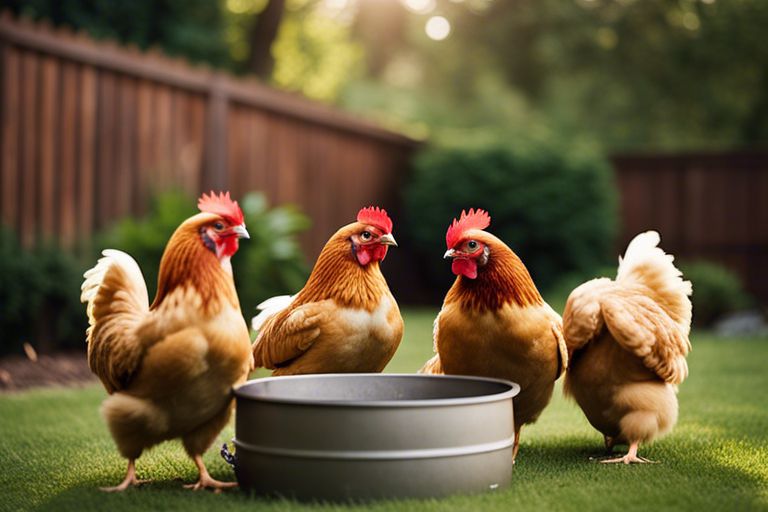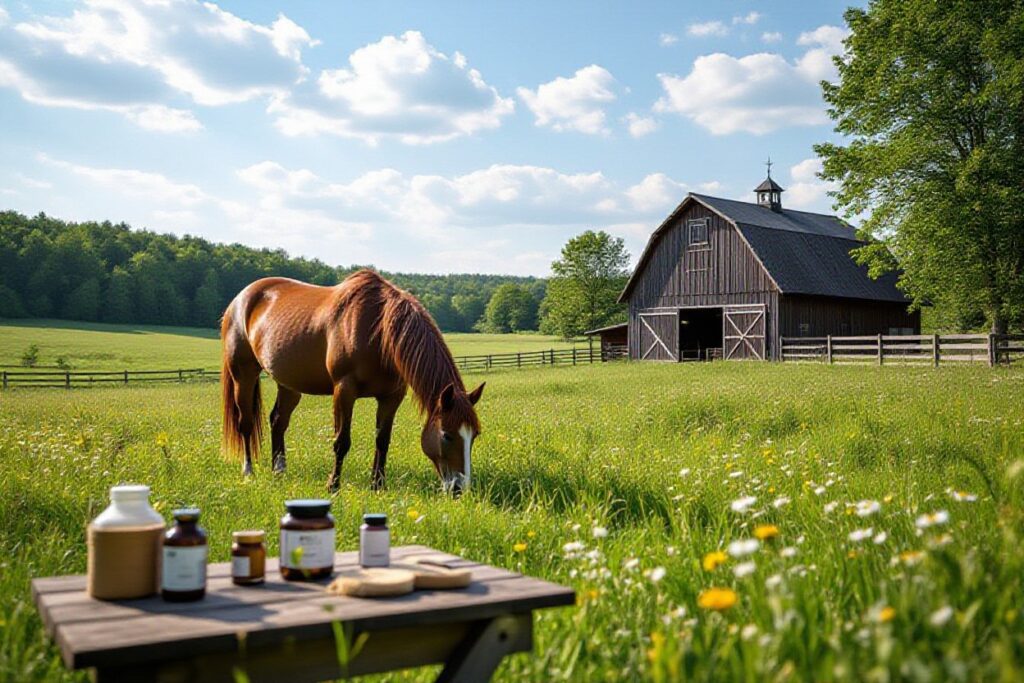It’s crucial to ensure that your chicken flock is free from stress to promote their overall health and well-being. Stress in chickens can lead to a variety of health issues and reduce egg production. To maintain a happy and thriving flock, here are some necessary tips to effectively manage stress in your chickens. By implementing these strategies, you can create a harmonious environment that promotes the happiness and welfare of your feathered friends.
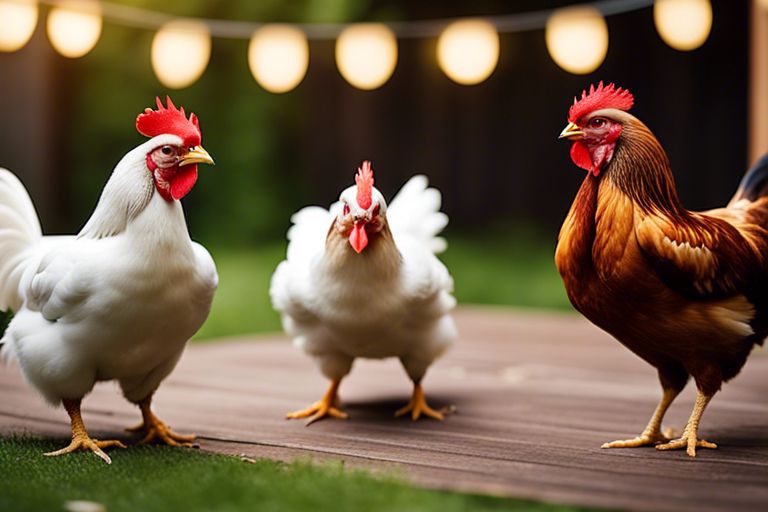
Understanding Chicken Behavior
Signs of Stress in Chickens
For poultry owners, it is crucial to recognize the signs of stress in chickens to ensure a happy and healthy flock. Common signs include decreased egg production, feather picking, aggressive behavior, lethargy, and reduced feed intake. By closely monitoring your chickens’ behavior, you can address any issues promptly and minimize stress within the flock.
Natural Behaviors and Stress Relief
Behavioral patterns in chickens offer insight into how they cope with stress and maintain their well-being. Chickens exhibit natural behaviors such as dust bathing, foraging, roosting, and socializing, which play a significant role in stress relief. Providing a conducive environment that supports these natural behaviors can help reduce stress and promote a harmonious flock dynamic.
It is imperative to offer a spacious and enriching environment with access to dust bathing areas, varied perching options, and opportunities for foraging. These activities not only alleviate stress but also contribute to the overall mental and physical health of your chickens.
Environmental Enrichment
Coop Design and Comfort
While stress management in chickens is crucial, providing a comfortable living environment through proper coop design is equally important. Coop design should focus on providing adequate space, proper ventilation, and nesting boxes for your flock to feel secure and relaxed.
Outdoor Access and Foraging Opportunities
The key to reducing stress in chickens lies in allowing them access to the outdoors and providing ample foraging opportunities. Chickens are natural foragers and thrive when given the opportunity to peck and scratch for insects, seeds, and plants in a natural outdoor environment.
With outdoor access, chickens can engage in natural behaviors like dust bathing and sunbathing, which are necessary for their physical and mental well-being. This also helps to reduce boredom and aggression within the flock, leading to a more harmonious and content group of chickens.
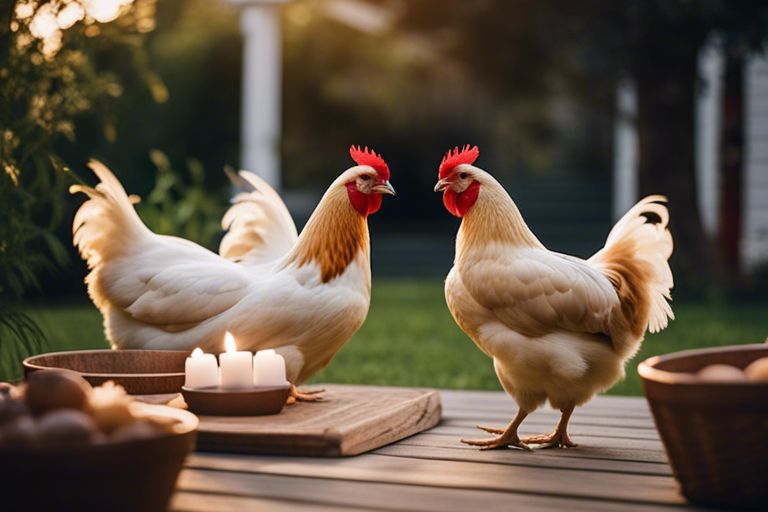
Nutritional Strategies
Balanced Diet Importance
Strategies for managing stress in chickens often begin with ensuring they receive a balanced diet. A balanced diet is crucial for the overall health and well-being of your flock. Providing chickens with the right mix of protein, carbohydrates, fats, vitamins, and minerals will help support their immune system, reduce stress levels, and promote a happy and productive flock.
Supplements and Treats for Stress Reduction
For optimal stress management in chickens, incorporating supplements and treats into their diet can be beneficial. Certain supplements like probiotics, vitamins, and herbs can help support their immune system and reduce stress. Treats such as mealworms, fruits, and vegetables not only serve as a special treat for your flock but also provide additional nutrients and enrichment.
For instance, adding a sprinkle of dried herbs like lavender or chamomile to their feed can have a calming effect on chickens, helping to reduce stress levels. It’s important to remember that supplements and treats should complement a balanced diet and not serve as a replacement for it. Always consult with a poultry nutrition specialist to determine the best supplements and treats for your chickens based on their specific needs.
Handling and Socialization
Proper Techniques for Handling Chickens
Proper handling is important for the well-being of your chickens. When picking up a chicken, approach calmly and confidently, gently securing their wings to prevent flapping. Support their body securely with one hand beneath their breast and the other hand supporting their rear. Avoid sudden movements that can startle them, and always be gentle to build trust and minimize stress.
The Role of Flock Dynamics in Stress Management
Handling stress in chickens goes beyond just individual interactions – understanding flock dynamics is crucial. Chickens thrive in social settings, and hierarchies within the flock can impact stress levels. Introducing new birds or disruptions to the established pecking order can cause tension and stress. Ensure adequate space, food, and resources to reduce competition and minimize conflict within the flock.
Flock dynamics play a significant role in determining the overall stress levels within a chicken flock. Chickens are social animals that establish hierarchies and rely on interactions with their flockmates for comfort and security. Disruptions in the social order can lead to increased stress and aggression. It’s crucial to observe and understand the dynamics within your flock to provide a harmonious environment for all your feathered friends.
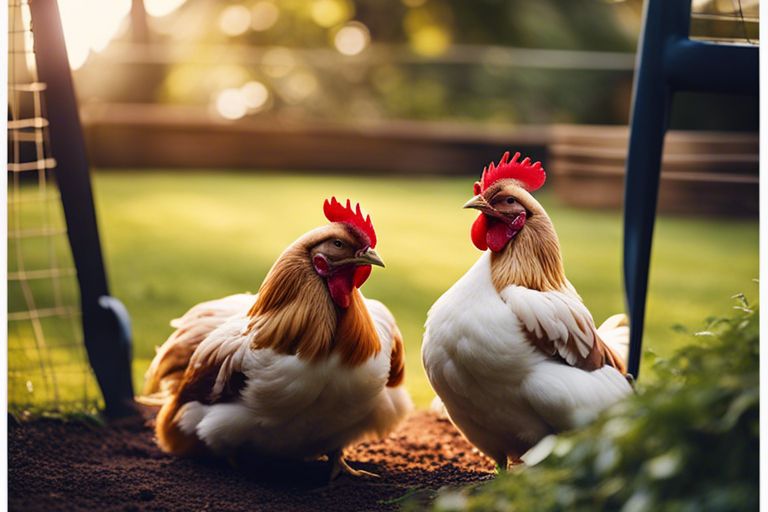
Preventive Health Measures
Parasite Control and Disease Prevention
An important aspect of maintaining a healthy flock is implementing proper parasite control measures and preventing the spread of diseases among your chickens. Regularly checking your chickens for signs of parasites such as mites, lice, and worms is crucial. Use appropriate treatments recommended by a veterinarian to keep these pests at bay. Furthermore, practice good biosecurity measures to minimize the risk of disease transmission within the flock.
The Significance of Regular Veterinary Check-ups
One of the most effective preventive health measures for poultry is scheduling regular veterinary check-ups for your chickens. A qualified avian veterinarian can conduct thorough examinations to detect any underlying health issues early on. These check-ups also provide an opportunity to discuss vaccination schedules, dietary requirements, and any concerns you may have about your flock’s well-being.
Prevention is key when it comes to maintaining the health and well-being of your chickens. Regular veterinary check-ups enable early detection of potential health issues, allowing for prompt intervention and treatment. Your veterinarian can also provide valuable advice on how to optimize the living conditions and nutrition of your flock to prevent common health problems.
Conclusion
Upon reflecting on the strategies presented for managing stress in chickens, it is evident that creating a comfortable and stress-free environment is crucial for maintaining a happy flock. By providing proper nutrition, adequate space, enriching activities, and a clean living environment, poultry owners can significantly reduce the negative impacts of stress on their chickens. Regular health checks, early detection of any issues, and prompt intervention play a key role in ensuring the well-being of the flock. By following these tips, poultry owners can promote a healthy and contented poultry population, leading to better overall productivity and quality of life for their chickens.
FAQ
Q: What are common stressors for chickens?
A: Common stressors for chickens include overcrowding, changes in their environment, extreme temperatures, predator presence, and disruptions in their routine.
Q: How can stress affect chickens?
A: Stress can negatively impact a chicken’s health and well-being, leading to decreased egg production, susceptibility to diseases, aggressive behavior, and even death.
Q: What are the signs that a chicken is stressed?
A: Signs of stress in chickens include feather picking, reduced appetite, lethargy, increased aggressiveness, excessive vocalization, and decreased egg production.
Q: How can I reduce stress in my flock?
A: To reduce stress in your flock, provide adequate space, proper nutrition, clean water, comfortable housing, opportunities for exercise, and a calm and predictable environment.
Q: Can social interactions impact stress levels in chickens?
A: Yes, social interactions play a significant role in a chicken’s well-being. Establishing a stable pecking order, minimizing aggression, and ensuring compatibility among flock members can reduce stress levels.
Q: How important is environmental enrichment for chickens?
A: Environmental enrichment is crucial for chickens as it helps prevent boredom, encourages natural behaviors like scratching and dust bathing, and provides mental stimulation that can reduce stress and improve overall welfare.
Q: When should I seek veterinary care for a stressed chicken?
A: It is advisable to seek veterinary care for a stressed chicken if you observe severe or prolonged signs of stress, such as persistent lethargy, extreme feather loss, difficulty breathing, or any other concerning symptoms that do not improve with basic stress-reducing measures.
